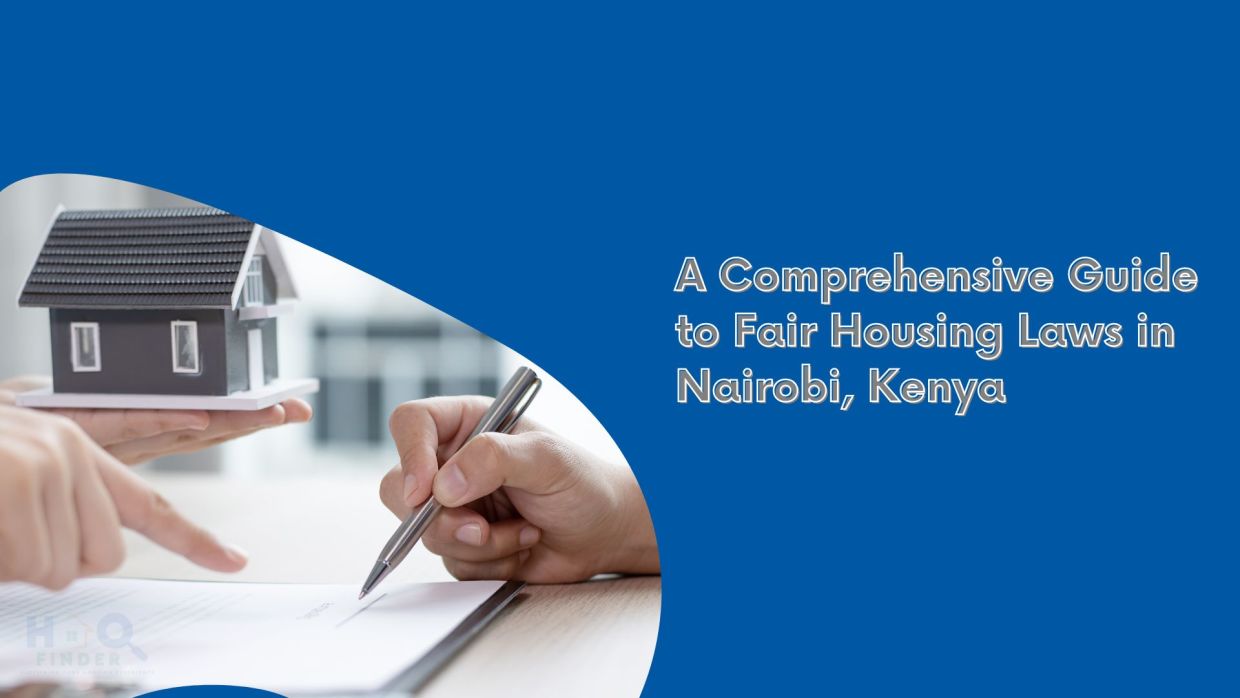The Basics of Fair Housing: A Comprehensive Guide for Beginners in Nairobi, Kenya
Are you curious about fair housing laws? Do you know your rights as a tenant or landlord? If you're looking for a comprehensive guide to the basics of fair housing, look no further. In this beginner's guide, we'll cover everything you need to know about fair housing laws, including protected classes, prohibited discrimination, and reasonable accommodations.

Img: Vaned
What does equal housing opportunity mean?
Equal housing opportunity is a fundamental principle that ensures all individuals have an equal chance to rent or buy a home, regardless of their race, color, national origin, religion, sex, familial status, or disability. This principle is enshrined in the The Landlord and Tenant Bill, 2021 pdf which prohibits discrimination in housing.
What is rental discrimination?
Rental discrimination occurs when a landlord or property owner denies someone housing based on their protected class status. This can take many forms, including refusing to rent to someone, setting different terms or conditions for someone, or making housing unavailable to someone.
What classes are protected from rental discrimination?
The Fair Housing laws and the Kenyan Constitution protects seven classes from rental discrimination: race, color, national origin, religion, sex, familial status, and disability. It's important to note that some counties, municipalities and Countries have additional protected classes, such as sexual orientation or gender identity.
How should you determine max occupancy?
When renting a property, it's important to determine the maximum occupancy allowed under fair housing laws. The general rule is two people per bedroom, plus one additional person. However, there are some exceptions to this rule, such as when renting to a family with children.
What should you consider when renting to families with children?
When renting to families with children, landlords cannot discriminate against them based on their familial status. This means landlords cannot refuse to rent to families with children or impose additional requirements on them. Additionally, landlords must allow reasonable accommodations, such as installing childproof locks on doors or allowing a family to paint their child's bedroom.
Who is exempt from fair housing laws?
There are some exemptions to fair housing laws, such as owner-occupied buildings with four or fewer units or private clubs that limit occupancy to members. Additionally, some religious organizations may be exempt from certain fair housing requirements.
What do fair housing laws prohibit?
Fair housing laws prohibit a variety of discriminatory practices, including refusing to rent to someone based on their protected class status, setting different terms or conditions for someone based on their protected class status, and advertising or making statements that indicate a preference for or against someone based on their protected class status.
What is reasonable accommodation?
Reasonable accommodation is a modification or adjustment to a rental unit or common area that allows a person with a disability to use and enjoy the property. Examples of reasonable accommodations include installing grab bars in a bathroom or allowing a tenant to keep a service animal.
What is reasonable modification?
Reasonable modification is a physical modification to a rental unit or common area that allows a person with a disability to use and enjoy the property. Examples of reasonable modifications include installing a wheelchair ramp or lowering kitchen countertops.
What are the rights of a tenant in Kenya?
Tenants in Kenya have several rights, including the right to a habitable dwelling, the right to quiet enjoyment, and the right to have their security deposit returned within 30 days of moving out. Additionally, tenants have the right to receive written notice of any rent increases and to challenge any unlawful evictions.
How many months notice should a landlord give in Kenya?
Under Kenyan law, landlords must give tenants at least 90 days' notice before evicting them for non-payment of rent or any other reason.
Who is eligible for Boma Yangu?
Boma Yangu is a program under the Kenya Affordable Housing Programme that aims to provide affordable housing to Kenyan citizens. To be eligible for Boma Yangu.
In conclusion, understanding fair housing laws is crucial for both tenants and landlords in Nairobi, Kenya, and throughout Africa. By familiarizing yourself with protected classes, prohibited discrimination, and reasonable accommodations, you can help ensure that everyone has equal access to safe and affordable housing. Additionally, knowing your rights as a tenant in Kenya can help you navigate the rental process with confidence. Whether you're looking to rent or own a home in Nairobi, Juja Town, Kitisuru, Utawala Nairobi, Kileleshwa, Lower Kabete, Roysambu, or anywhere else in Kenya, remember that fair housing laws are in place to protect you. By following these laws, we can all work together to create a more just and equitable society.

